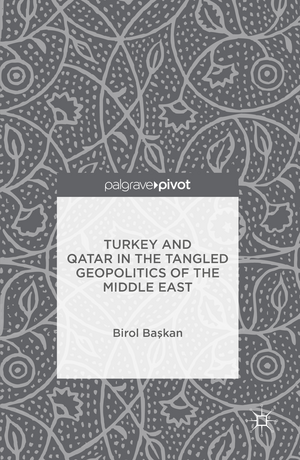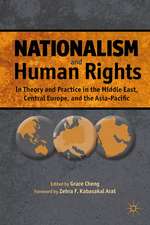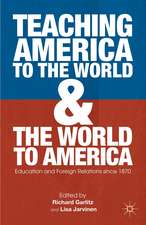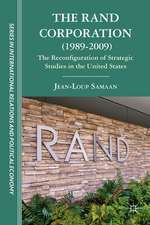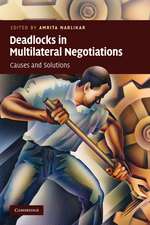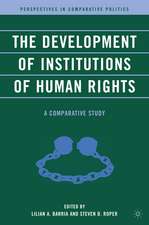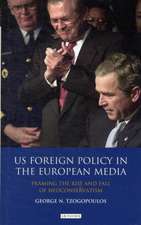Turkey and Qatar in the Tangled Geopolitics of the Middle East
Autor Birol Başkanen Limba Engleză Hardback – 11 mai 2016
Preț: 417.52 lei
Nou
Puncte Express: 626
Preț estimativ în valută:
79.89€ • 83.63$ • 66.50£
79.89€ • 83.63$ • 66.50£
Carte tipărită la comandă
Livrare economică 31 martie-14 aprilie
Preluare comenzi: 021 569.72.76
Specificații
ISBN-13: 9781137517708
ISBN-10: 1137517700
Pagini: 151
Ilustrații: XII, 147 p.
Dimensiuni: 148 x 210 x 14 mm
Greutate: 0.33 kg
Ediția:1st ed. 2016
Editura: Palgrave Macmillan US
Colecția Palgrave Pivot
Locul publicării:New York, United States
ISBN-10: 1137517700
Pagini: 151
Ilustrații: XII, 147 p.
Dimensiuni: 148 x 210 x 14 mm
Greutate: 0.33 kg
Ediția:1st ed. 2016
Editura: Palgrave Macmillan US
Colecția Palgrave Pivot
Locul publicării:New York, United States
Cuprins
1. Prologue.-2. Introduction.-3. The 9/11 Attacks and the US Response.-4. Unsettling the Middle East: The Implications of the US Rhetoric and Action.-5. Enter Turkey and Qatar.-6. The Arab Spring Erupts, Turkey and Qatar Respond.-7. The Coup and Its Aftermath.-8. The Future
Notă biografică
Birol Başkan is Assistant Professor of Government at Georgetown University School of Foreign Service in Qatar. He received his PhD from Northwestern University, USA, and previously taught at the State University of New York-Fredonia, USA, and Qatar University. He has published in numerous academic journals such as Politics and Religion, Insight Turkey, Arab Studies Quarterly, Comparative Political Studies, and International Sociology. He is the author of From Religious Empires to Secular States (2014) and the co-editor of State-Society Relations in the Arab Gulf States (2014).
Textul de pe ultima copertă
This book narrates how Turkey and Qatar have come to forge a mutually special relationship. The book argues that throughout the 2000s Turkey and Qatar had pursued similar foreign policies and aligned their positions on many critical and controversial issues. By doing so, however, they increasingly isolated themselves in the Middle East as states challenging the status quo. The claim made here is that it is this isolation—which became acute in the summer of 2013—that led the two countries to forge much stronger relations.
